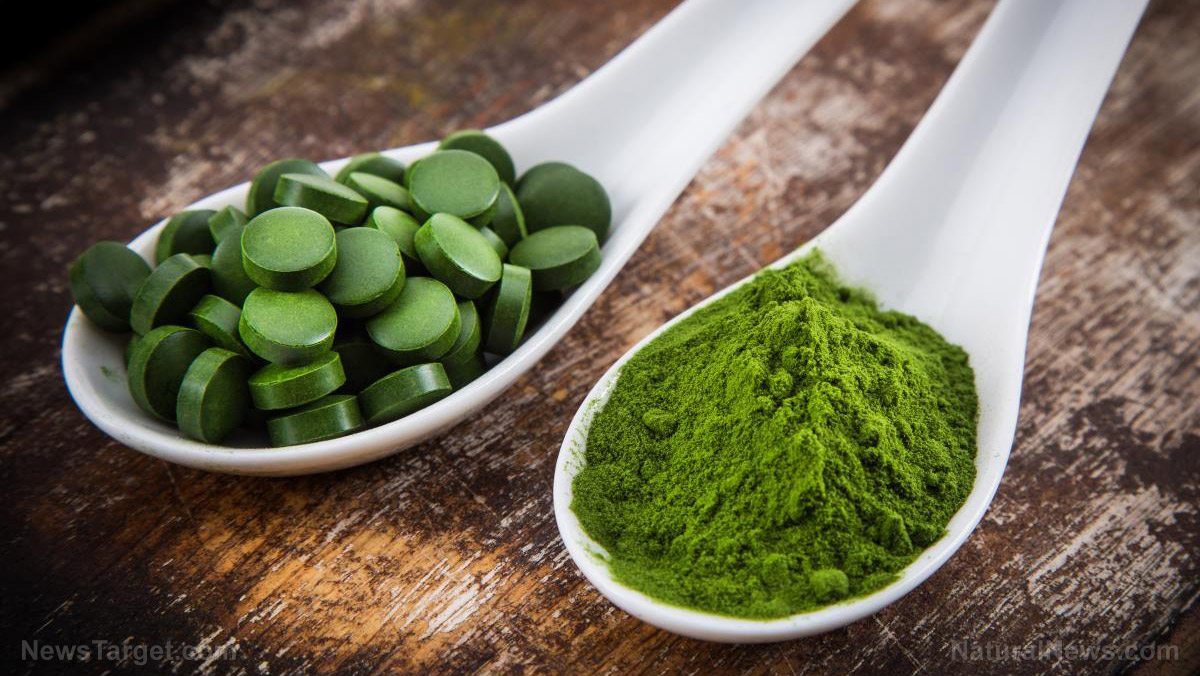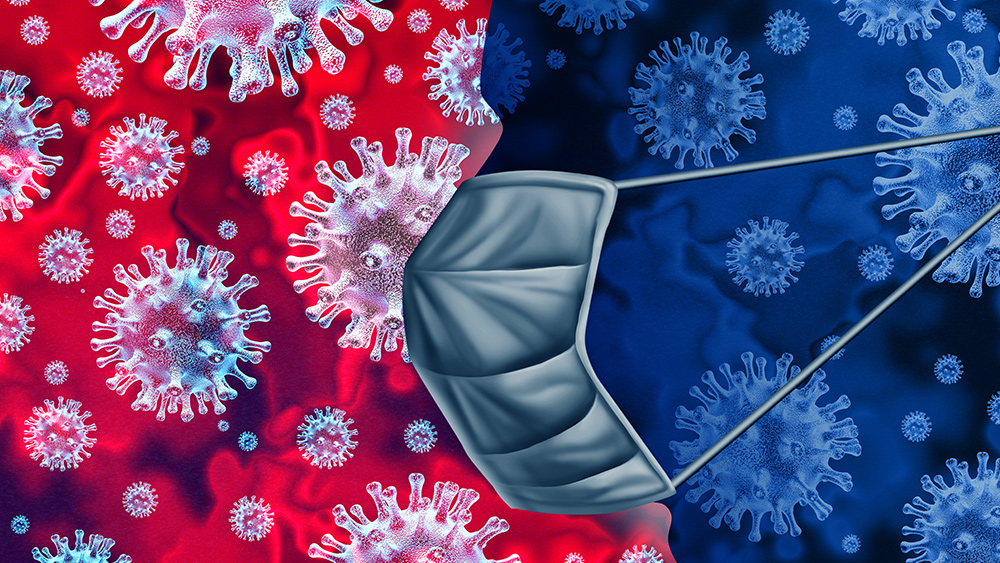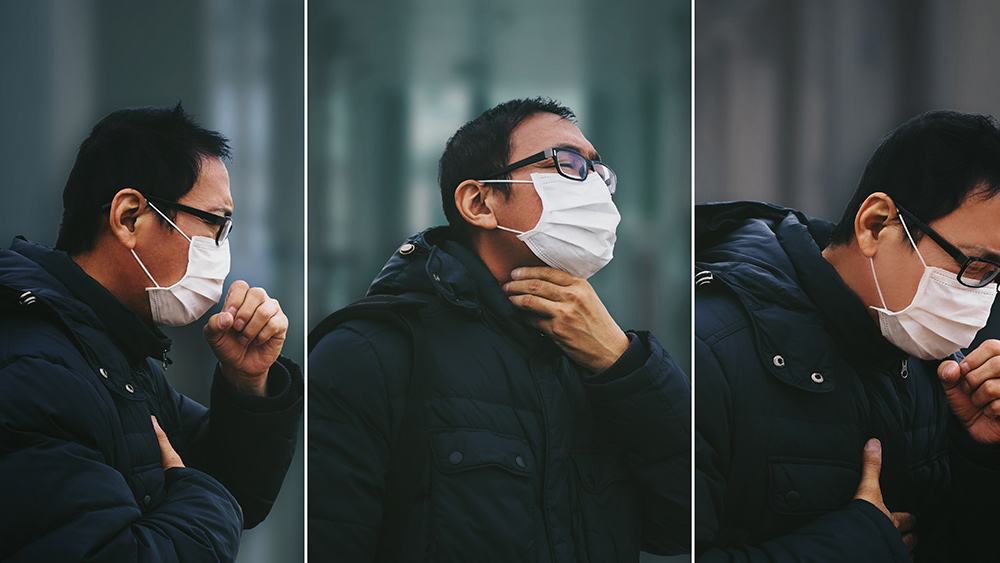Cold to the touch: 8 Causes of cold fingers
03/03/2020 / By Darnel Fernandez

The first part of the body to feel cold, especially when you venture out on a chilly day, are your fingers. This is a normal occurrence: To protect itself from freezing, the body adapts to keep vital organs as warm as possible. To do this, it instinctively brings warm blood from the extremities and draws it towards the core to keep important organs like the lungs and heart safe.
But if your fingers persistently feel chilly despite being in normal or warm weather, it might be a warning sign of an underlying condition.
What causes frosty fingers?
Having persistently cold fingers can be quite uncomfortable – for both you and anyone you touch. How long the coldness lasts varies depending on the severity, ranging from only a few minutes to even a few days. Below you can find a list of common causes for this frigid condition.
Stress and anxiety
Stress can do a number on many parts of the body, and the hands are no exception. When someone experiences chronic stress or anxiety, the body goes into a constant “fight-or-flight” state where adrenaline surges are frequent. These surges can constrict the blood vessels in the hands and decrease blood flow to the fingers, leading to cold fingers and hands.
Anemia
Anemia is a condition where your blood has a significantly lower amount of red blood cells. It also occurs when the red blood cells lack hemoglobin — an iron-rich protein that helps the cells deliver oxygen to the rest of the body. While there are many causes and types of anemia, its symptoms often include cold hands and fingers due to the lack of oxygen available for the body to use. Other symptoms include weakness, fatigue, pale skin, headaches and dizziness.
One of the most common reasons behind anemia is iron deficiency. Experts claim that eating a diet chockful of iron-rich foods can not only help treat anemia but also improve your overall health.
Blood clots
In very rare cases, you can develop cold fingers if a blood clot forms somewhere in the body and transfers to an artery in the arms. This can cause the fingers, hands and arms to feel a cold and sometimes painful sensation.
Raynaud’s disease
Also known as Raynaud’s phenomenon, this condition causes some areas of the body – including the fingers – to suddenly feel cold or numb when left exposed to cold temperatures or in high-stress situations. During a Raynaud’s disease attack, your arteries narrow, preventing your blood from circulating properly. This reduced circulation is called a “white finger attack,” one of the disease’s primary characteristics.
The severity of Raynaud’s disease can range from mild to very severe, and it can even cause ulcers in the fingers and toes of people who already have impaired circulation in the first place. However, this disease is rarely debilitating and there are easy-to-access treatments available that can help relieve symptoms. (Related: Raw food diet provides relief from Raynaud’s disease symptoms.)
Medications
Some forms of medicine can have cold fingers or hands as a side-effect. Medications like amphetamines and over-the-counter or prescription decongestants can affect your blood flow, causing tiny blood vessels to spasm. These spasms can inhibit blood flow to the hands, causing your fingers to get cold and tingly.
Hypothyroidism
Hypothyroidism is when the thyroid — a small gland in front of the throat — does not produce enough of the thyroid hormones vital for bodily functions. Not producing enough hormones can cause cold intolerance, which means getting cold hands will be much more common. In addition, it can also reduce blood flow, which causes fingers to get cold easily.
Peripheral artery disease
This debilitating heart disease commonly occurs in many older adults. Peripheral artery disease is characterized by the build-up of plaque in various parts of the body, including the arms and legs. This blocks or restricts the blood flow coming from the lungs towards the rest of your body, which, again, can increase the risk of getting cold fingers.
Vitamin B12 deficiency
Vitamin B12 is an essential vitamin, meaning that it must be gained from external sources because the body can’t produce it naturally. Thankfully, this vitamin is found in a wide variety of foods, including eggs, meat, fish and poultry. However, there are people – especially vegans and vegetarians – who aren’t getting enough vitamin B-12 in their systems. Other symptoms of vitamin B12 deficiency include numbness and tingling.
Those living in particularly cold areas have to live with cold fingers as a part of their lives. However, you may need to schedule a trip to your health care practitioner if symptoms persist in case something much more serious is to blame. Learn more about these other underlying conditions and how to treat them at Health.news.
Sources include:
Tagged Under: anemia, blood clotting, causes, cold fingers, Diseases, heart health, hypothyroidism, nutrients, peripheral artery disease, Prescription drugs, prevention, Raynaud's disease, stress and anxiety, vitamin b-12 deficiency



















